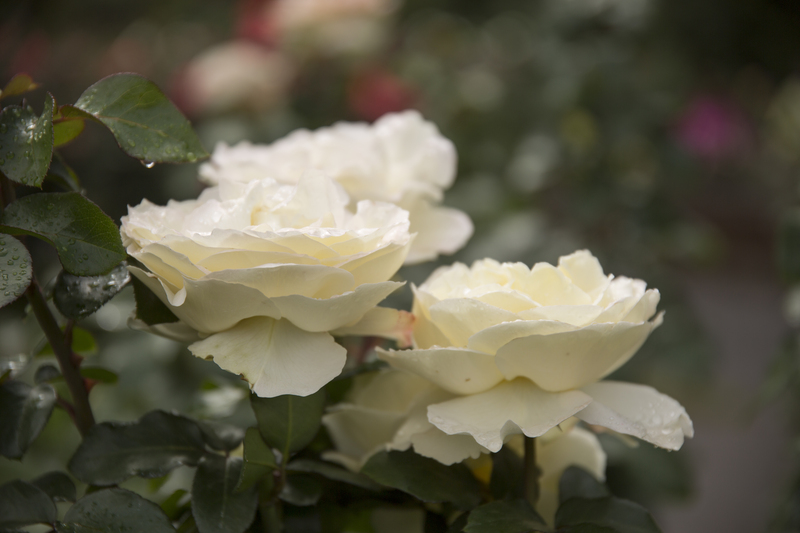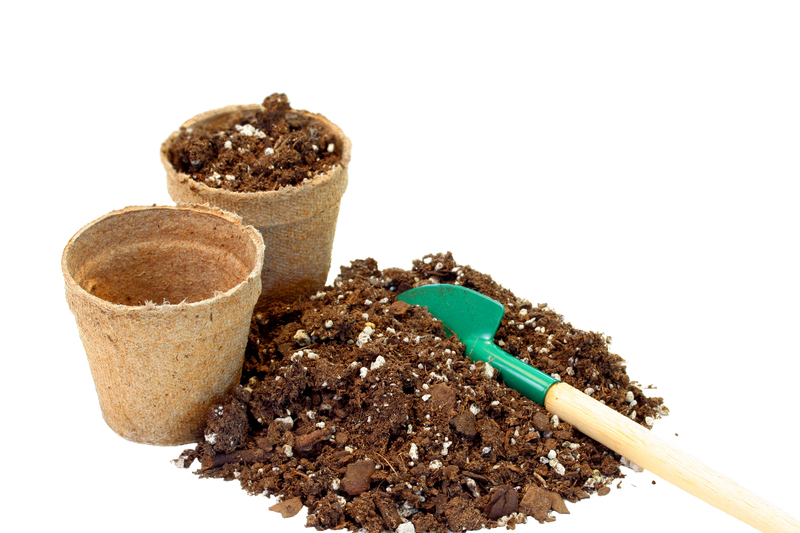Cultivate a Thriving Garden with 9 Essential Tips for Starters
Posted on 18/09/2025
Cultivate a Thriving Garden with 9 Essential Tips for Starters
Embarking on your journey as a gardener is an exciting and rewarding adventure. Whether you dream of harvesting your own vegetables, nurturing beautiful blooms, or simply want to connect with nature in your backyard, starting a garden can transform your outdoor space and your lifestyle. This comprehensive guide will help you cultivate a thriving garden by revealing key gardening tips and expert advice specially tailored for beginners. Read on to unearth the secrets to a flourishing garden and discover how to make your gardening journey enjoyable and successful from the very beginning.
Why Should Beginners Care About Successful Gardening?
Nurturing a healthy garden offers numerous benefits--from fresh produce and vibrant flowers to reducing stress, enhancing curb appeal, and even increasing property value. For starters, understanding the basics and best practices can prevent common pitfalls and maximize the joy and rewards your garden brings. Utilizing these starter tips is the first step to growing a lush garden that brings lasting satisfaction.

9 Essential Gardening Tips Every Beginner Should Know
Learning the right gardening strategies early on can make the difference between a struggling patch and a flourishing oasis. Here are the 9 must-know tips for beginner gardeners to help you succeed from the very start:
1. Choose the Right Location
- Assess Sunlight: Most plants require at least 6-8 hours of sunlight each day. Before planting, observe your yard to determine which areas receive the most consistent sunlight.
- Consider Proximity: Select a location close to a water source for convenience. This ensures watering your plants is easy and you'll be less likely to forget.
- Protection from Elements: Shield your garden from strong winds or harsh weather using hedges, fences, or nearby structures.
Tip for Starters: Mark out your proposed garden area and watch how the sunlight moves throughout the day, taking notes on shaded and sunlit areas.
2. Understand Your Soil
- Test Your Soil: Get a simple soil test kit from your local garden center. Testing helps you identify pH levels and nutrient content so you can amend your soil appropriately.
- Soil Texture: The ideal garden soil, often called "loam," is a balanced mix of sand, silt, and clay.
- Compost and Fertilizers: Introduce organic matter like compost to enhance your soil's structure and nutrition.
Pro Tip: Plants are only as healthy as the soil they grow in. Healthy, well-amended soil is the foundation of every thriving garden.
3. Select the Right Plants for Your Region
- Know Your Growing Zone: Use your region's USDA Hardiness Zone Map to determine which plants will flourish in your garden's climate.
- Native Plants: Incorporate native species which are naturally adapted to your local environment, requiring less maintenance and water.
- Seasonal Choices: Select seeds or seedlings that are recommended for planting in the current season.
Quick Tip: Visit a local nursery for advice on what to plant; professionals can offer recommendations tailored to your area.
4. Plan and Design Your Garden Layout
- Map It Out: Sketch your ideal garden on paper to visualize plant placement, considering each plant's mature size.
- Group by Water Needs: Place plants with similar water requirements together to avoid over- or under-watering.
- Allow Space for Growth: Avoid overcrowding to ensure proper air circulation and reduce disease risk.
This simple planning step can ensure your beginner garden not only looks appealing but is also easier to care for in the long run.
5. Master Proper Planting Techniques
- Follow Packet Instructions: Each variety has unique planting depths and spacing needs. Read seed/pot tags and follow the guidelines closely.
- Don't Disturb Roots: When transplanting young plants, be gentle with their root systems to minimize shock and encourage healthy growth.
- Mulch Wisely: Apply organic mulch to retain soil moisture, moderate temperature, and suppress weeds.
Essential for Starters: Begin with a mix of seeds and starter plants so you can learn both sowing and transplanting basics.
6. Create a Simple Watering Routine
- Consistency is Key: Keep soil evenly moist, but avoid waterlogging. Most gardens thrive with an inch of water per week, depending on rainfall and temperature.
- Water Deeply: Deep, infrequent watering is preferable to frequent, shallow sprinkling as it encourages roots to grow deeper.
- Morning Watering: Watering early helps soil absorb moisture and reduces evaporation losses.
Remember: Overwatering is as harmful as underwatering. Use your finger to check if the soil is dry an inch beneath the surface before watering again.
7. Prevent Weeds and Pests Naturally
- Mulch to Suppress Weeds: Applying 2-3 inches of mulch helps prevent weed growth and keeps your soil healthy.
- Hand Weeding: Inspect your garden frequently and pull weeds while they are small and manageable.
- Encourage Beneficial Insects: Attract pollinators and pest predators (like ladybugs and lacewings) by planting marigolds, daisies, and other insect-friendly flowers.
- Nontoxic Solutions: Use neem oil, insecticidal soap, or create your own garlic spray to control minor pest issues without chemicals.
Start Smart: A diverse garden is less likely to suffer from severe pest and disease problems. Mixing plant types can naturally deter common invaders.
8. Practice Regular Garden Maintenance
- Prune and Deadhead: Remove dead or damaged leaves and faded blooms to promote new growth and healthier plants.
- Support Tall Plants: Use stakes, cages, or trellises for taller crops like tomatoes, beans, or delphiniums.
- Monitor for Disease: Check for leaf spots, discoloration, or unusual growth and treat early to keep your garden healthy.
- Add Compost Regularly: Top-dress soil with fresh compost to continually feed your plants and improve soil quality.
Pro Gardener Insight: Make a weekly walk-through part of your gardening ritual to catch minor issues before they escalate.
9. Keep Learning and Experimenting
- Join Garden Groups: Local clubs or online forums are invaluable for advice, inspiration, and trouble-shooting.
- Track Your Progress: Keep a simple gardening journal to record plant varieties, weather, and successes or challenges each season.
- Stay Curious: Experiment with new plants, planting times, and garden layouts to find what works best in your unique space.
Gardening is a learning journey. Mistakes and small failures are part of the process; every season brings new discoveries and growth for both you and your plants. Celebrate all your thriving garden victories, big and small!
Additional Helpful Gardening Advice for Starters
- Start Small: It's better to begin with a small, manageable plot than to take on too much as a beginner.
- Quality Over Quantity: Choose a handful of plants to nurture rather than overwhelming yourself with a sprawling project.
- Label Plants: Use weatherproof tags to keep track of your plant varieties and avoid confusion as things grow.
As you grow your confidence, you can gradually expand your garden's size and complexity. Remember, even seasoned gardeners are always learning!
The Benefits of a Well-Cared-For Garden for Beginners
The rewards of successful gardening extend far beyond fresh produce or pretty landscapes. By committing to these fundamental tips, you will:
- Enhance Your Home's Curb Appeal: A vibrant garden creates a warm welcome and elevates your property's visual appeal.
- Enjoy Fresh, Nutritious Foods: Homegrown fruits and vegetables offer flavor and nutrition not found in store-bought produce.
- Improve Mental and Physical Health: Gardening reduces stress, encourages outdoor activity, and promotes mindfulness.
- Support Biodiversity: Your garden can become a sanctuary for bees, butterflies, birds, and beneficial insects, benefitting local ecosystems.
Cultivating a thriving garden not only transforms your environment but also enriches your lifestyle and community.

Frequently Asked Questions on Thriving Gardens for Beginners
Q: What is the best time to start a garden?
A: The optimal time depends on your local climate and the plants you wish to grow. Generally, spring and early fall are perfect for most vegetables and flowers. Consult a planting calendar or local nursery for guidance.
Q: How much space do I need to start a garden?
A: Beginners can be successful with a garden bed as small as 4x4 feet or a few containers on a patio. Focus on quality of soil and plant care rather than total area.
Q: How do I prevent common pests without chemicals?
A: Use mulch, hand-picking, encouraging natural predators, and organic sprays like neem oil or insecticidal soap. Rotate crops and avoid monocultures to reduce pest populations.
Q: Is raised bed gardening better for beginners?
A: Raised beds are an excellent choice for novice gardeners. They provide better drainage, make soil amendment easier, and can help reduce weeding. They also offer accessibility for those with limited mobility.
Final Thoughts: Start Your Gardening Adventure Today!
Whether you have a sprawling backyard or a sunny balcony, cultivating a thriving garden is within your reach. By following these nine essential tips, you'll set the stage for a rewarding gardening experience. Watch as your seeds and seedlings transform into lush, healthy plants, and enjoy the satisfaction of harvesting your own flowers, herbs, or veggies.
Remember, every gardener started as a beginner. Nurture your garden with patience, curiosity, and care. The beauty and benefits will soon blossom, rewarding you season after season.
Ready to dig in? Grab your gloves, gather your seeds, and let these tips guide your hands as you create the garden of your dreams!
Latest Posts
Organic Waste Revolution: Soil Richness Unlocked
Cultivate a Thriving Garden with 9 Essential Tips for Starters
From Neglect to Nirvana: Begin Your Garden Makeover
Transform your home with aromatic plants in a personalized herb garden

